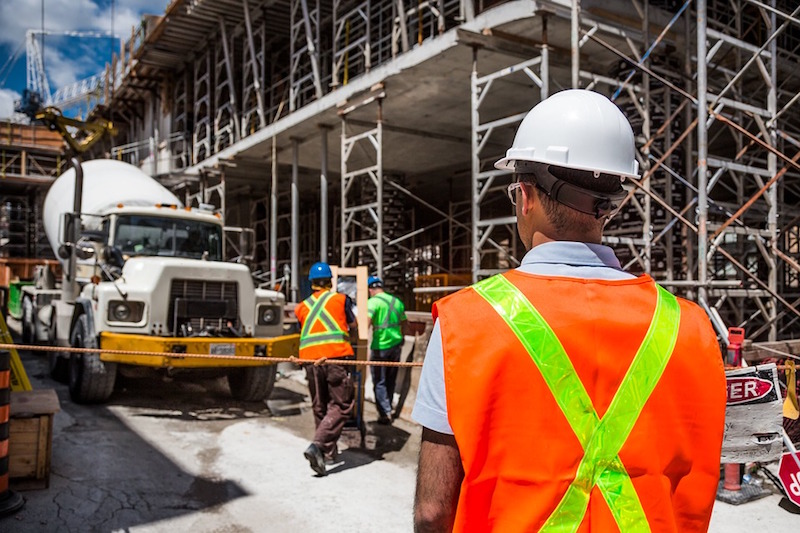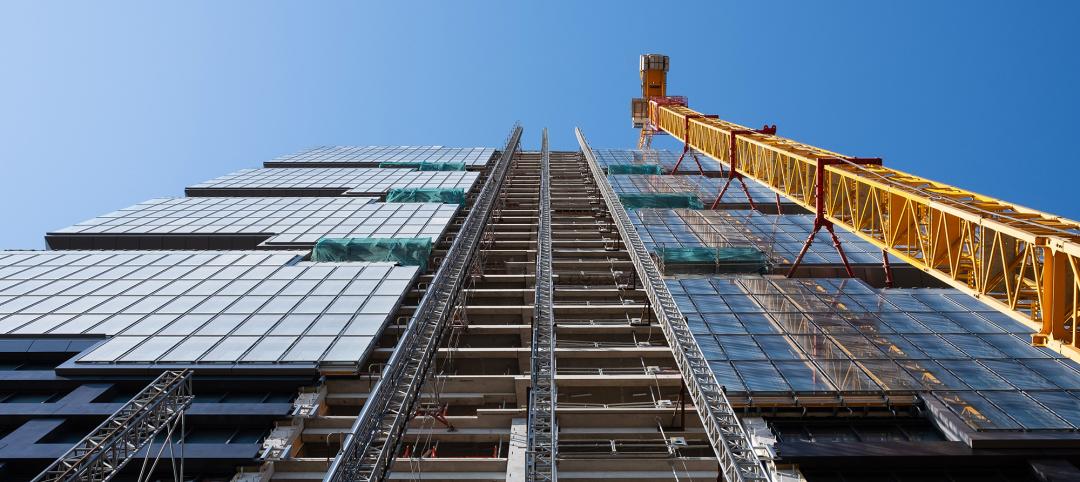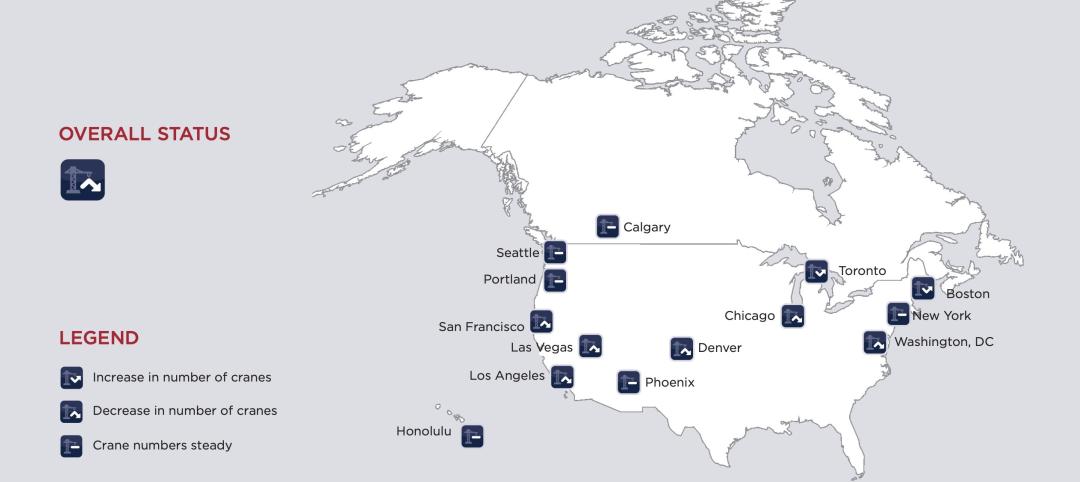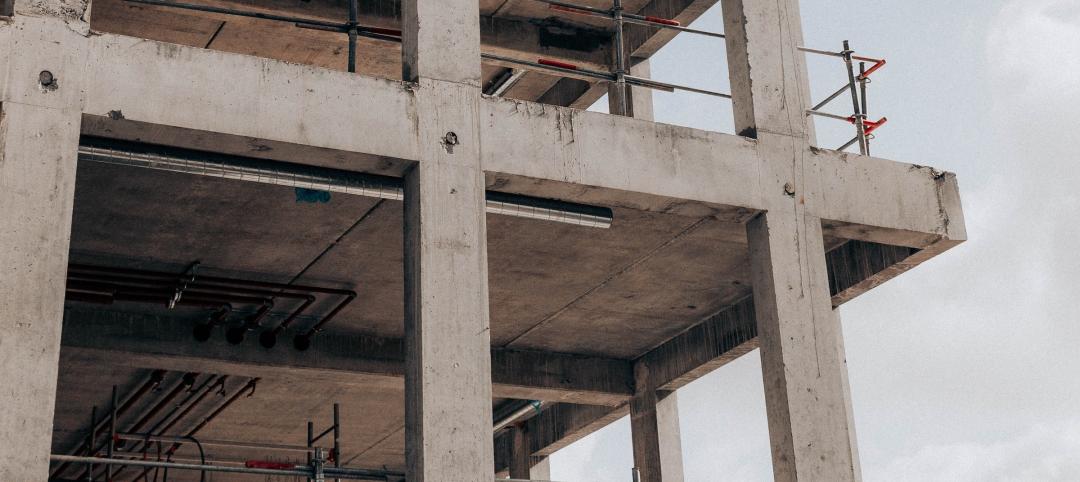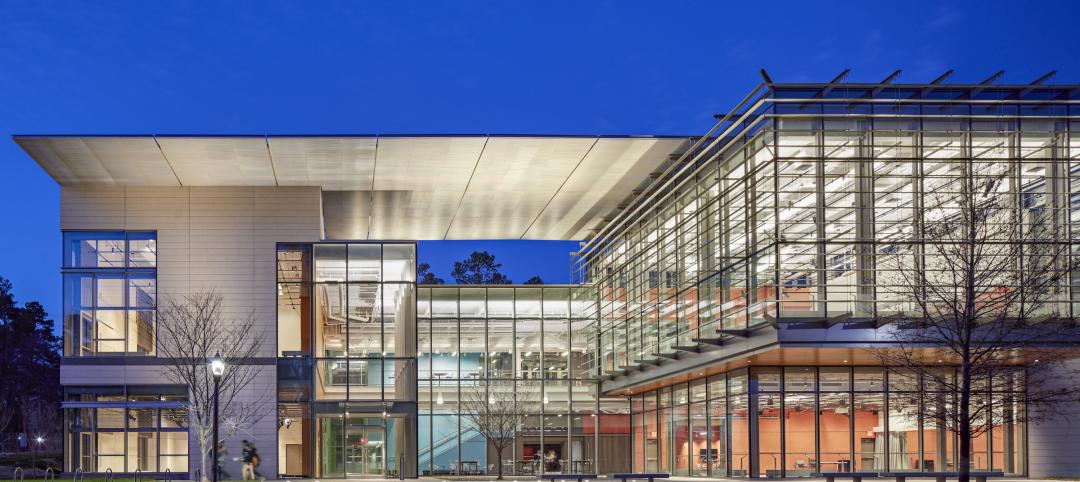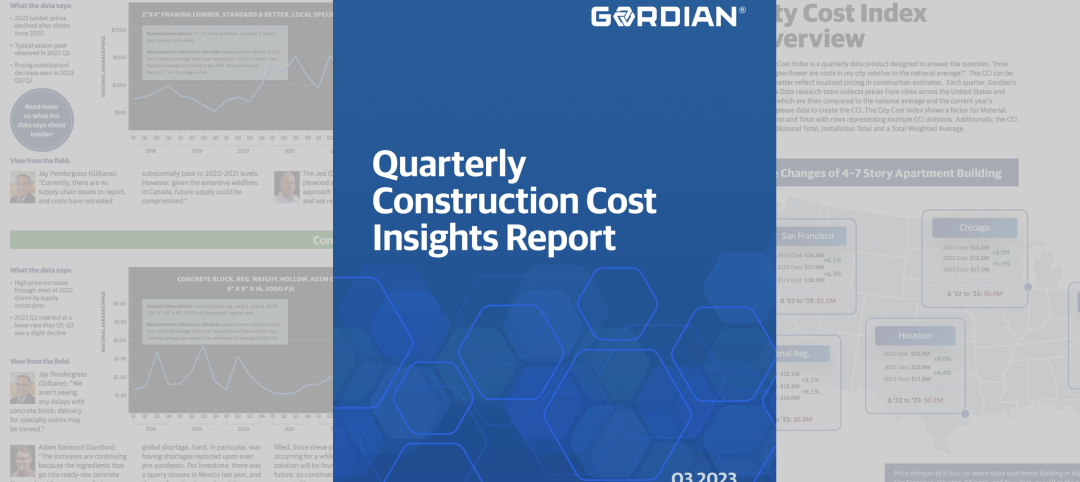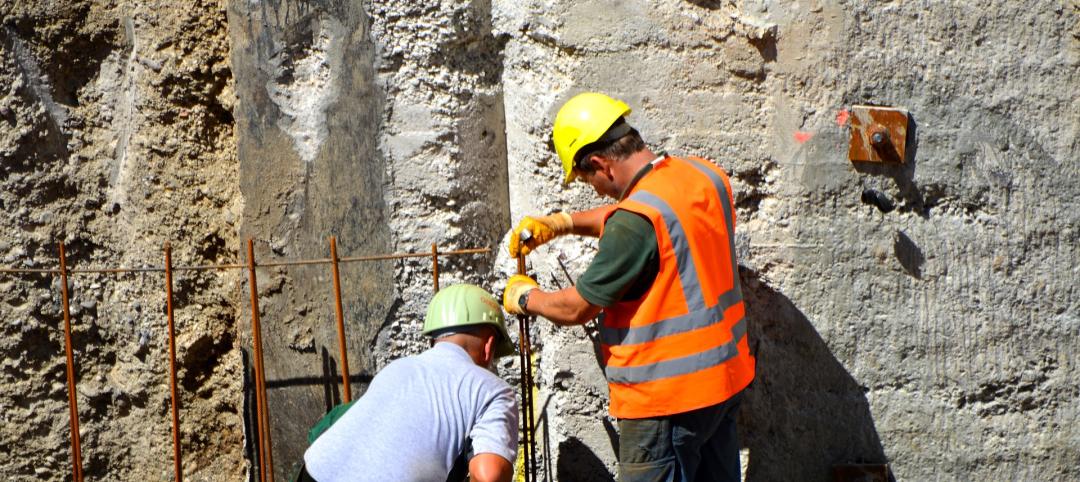Growing materials costs and dwindling talent pools coupled with looming political and economic uncertainty is leaving construction leaders grappling with serious challenges. But where there is greater challenge, comes greater opportunity. According to JLL’s latest report on United States construction activity there is stability ahead with indicators showing a growing backlog of contractor work and seasonal construction spending up 5.7% year-over-year.
But that’s not all. A closer look at the construction industry’s biggest challenges reveals some unexpected opportunities amidst the adversity.
“Many of the biggest industry issues have been consistent over the past year and are nothing new to industry experts,” said Mason Mularoni, Senior Research Analyst, JLL Project and Development Services. “These challenges are leading to a shift in traditional thinking, giving way to more innovation and a greater use of technology. This creates opportunities to generate better project efficiency and save on costs.”
Challenge or opportunity? You decide.
The seemingly interminable labor shortage: Construction unemployment continues to reach historic lows, sitting at 5.3% while hourly wages increase and outpace inflation. This is stretching project budgets and timelines, resulting in a heightened focus on productivity enhancement.
The silver lining? In an industry too often bogged down by contract and paper-passing to get work done efficiently, construction leaders are beginning to rethink the role of technology in day-to-day operations. Unified communications systems save time on paperwork, streamline communications and create better workflows and document sharing between teams. Investing in cloud and mobility solutions helps architects, designers and crew leaders communicate no matter where their works takes them.
Rising costs of materials: Over the last 12 years, materials costs have risen by nearly 30%, with 10% of the change happening in the last five years. With continued construction demand for materials and unknowns surrounding tariffs and international import changes, we can only wait and see when cost increases will slow.
The silver lining? The advent of building information modeling (BIM), artificial intelligence (AI) and modular construction are enabling firms to build more with less material and less waste. BIM technology allows architects and developers to reduce waste in both building and in operations. By knowing exactly how much to plan for, they can save on up-front materials costs. AI is helping firms to optimize materials distribution, while advances in modular construction is also reducing materials waste through recycling, more controlled inventory and enhanced quality control. Such innovations may not come cheap up-front, but they could contribute to cost savings down the line.
Overbuilding anxiety: The U.S. economy has grown steadily, quarter-over-quarter, since the Great Recession—and so has the commercial real estate and development industry. With construction pipelines showing no signs of slowing, many industry leaders are beginning to wonder when the next slowdown might occur.
The silver lining? Planning for different scenarios is an excellent mitigate uncertainty. And the better the analytics at hand, the clearer the outlooks become. Planning tools specific to construction activity are becoming more common, like apps that specifically exist to help project managers track complex data sets like capital planning and change management statistics. By taking long term goals into account, construction firms can begin to make slight changes such as buying materials early for large projects, building a solid pipeline of future work and considering risk carefully when opening a new multi-year development. All of these ideas can help firms move through the upcoming years with confidence and stability.
“Analyzing and tracking challenges like the skilled labor shortage and rising construction costs has allowed us to understand the biggest worries our clients have when it comes to their projects,” said Todd Burns, President, JLL Project and Development Services. “Because of this we are able to offer experience, technology solutions and non-traditional approaches to ease their minds and maximize proficiency.”
Download the latest JLL United States Construction Outlook here.
Related Stories
Multifamily Housing | Nov 9, 2023
Multifamily project completions forecast to slow starting 2026
Yardi Matrix has released its Q4 2023 Multifamily Supply Forecast, emphasizing a short-term spike and plateau of new construction.
Contractors | Nov 1, 2023
Nonresidential construction spending increases for the 16th straight month, in September 2023
National nonresidential construction spending increased 0.3% in September, according to an Associated Builders and Contractors analysis of data published today by the U.S. Census Bureau. On a seasonally adjusted annualized basis, nonresidential spending totaled $1.1 trillion.
Market Data | Oct 23, 2023
New data finds that the majority of renters are cost-burdened
The most recent data derived from the 2022 Census American Community Survey reveals that the proportion of American renters facing housing cost burdens has reached its highest point since 2012, undoing the progress made in the ten years leading up to the pandemic.
Contractors | Oct 19, 2023
Crane Index indicates slowing private-sector construction
Private-sector construction in major North American cities is slowing, according to the latest RLB Crane Index. The number of tower cranes in use declined 10% since the first quarter of 2023. The index, compiled by consulting firm Rider Levett Bucknall (RLB), found that only two of 14 cities—Boston and Toronto—saw increased crane counts.
Market Data | Oct 2, 2023
Nonresidential construction spending rises 0.4% in August 2023, led by manufacturing and public works sectors
National nonresidential construction spending increased 0.4% in August, according to an Associated Builders and Contractors analysis of data published today by the U.S. Census Bureau. On a seasonally adjusted annualized basis, nonresidential spending totaled $1.09 trillion.
Giants 400 | Sep 28, 2023
Top 100 University Building Construction Firms for 2023
Turner Construction, Whiting-Turner Contracting Co., STO Building Group, Suffolk Construction, and Skanska USA top BD+C's ranking of the nation's largest university sector contractors and construction management firms for 2023, as reported in Building Design+Construction's 2023 Giants 400 Report. Note: This ranking includes revenue for all university/college-related buildings except student residence halls, sports/recreation facilities, laboratories, S+T-related buildings, parking facilities, and performing arts centers (revenue for those buildings are reported in their respective Giants 400 ranking).
Construction Costs | Sep 28, 2023
U.S. construction market moves toward building material price stabilization
The newly released Quarterly Construction Cost Insights Report for Q3 2023 from Gordian reveals material costs remain high compared to prior years, but there is a move towards price stabilization for building and construction materials after years of significant fluctuations. In this report, top industry experts from Gordian, as well as from Gilbane, McCarthy Building Companies, and DPR Construction weigh in on the overall trends seen for construction material costs, and offer innovative solutions to navigate this terrain.
Data Centers | Sep 21, 2023
North American data center construction rises 25% to record high in first half of 2023, driven by growth of artificial intelligence
CBRE’s latest North American Data Center Trends Report found there is 2,287.6 megawatts (MW) of data center supply currently under construction in primary markets, reaching a new all-time high with more than 70% already preleased.
Contractors | Sep 12, 2023
The average U.S. contractor has 9.2 months worth of construction work in the pipeline, as of August 2023
Associated Builders and Contractors' Construction Backlog Indicator declined to 9.2 months in August, down 0.1 month, according to an ABC member survey conducted from Aug. 21 to Sept. 6. The reading is 0.5 months above the August 2022 level.
Contractors | Sep 11, 2023
Construction industry skills shortage is contributing to project delays
Relatively few candidates looking for work in the construction industry have the necessary skills to do the job well, according to a survey of construction industry managers by the Associated General Contractors of America (AGC) and Autodesk.


